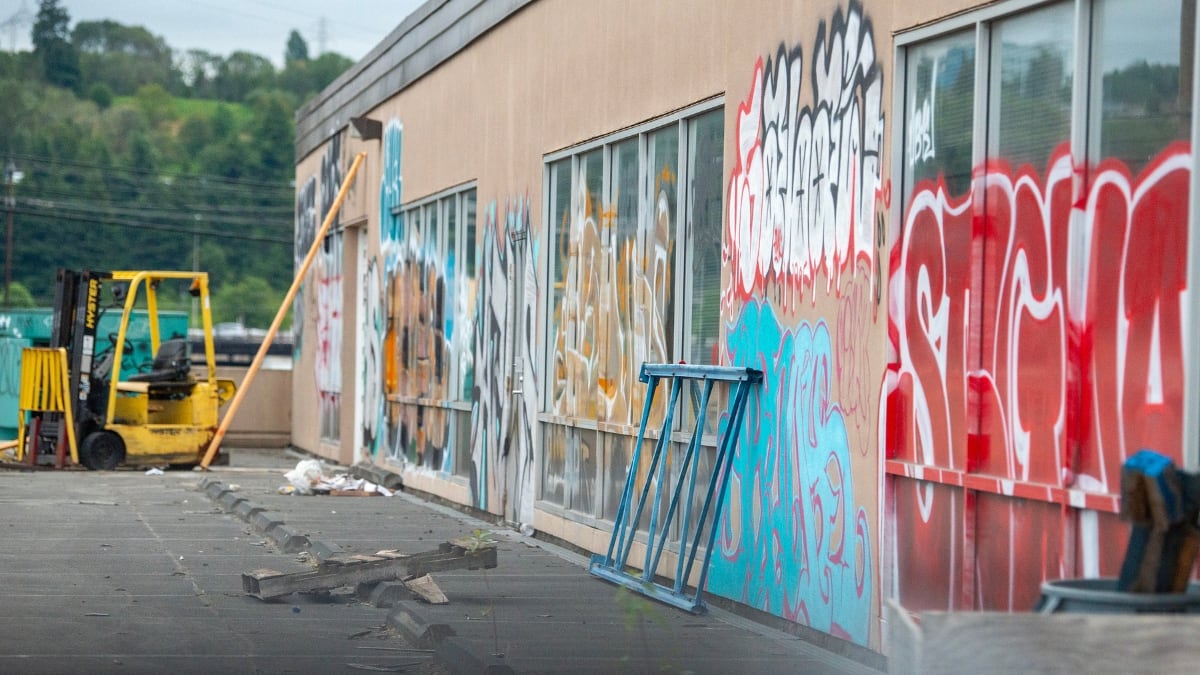The Seattle City Council on Tuesday approved new legislation that will allow civil fines of up to $1,500 per violation for graffiti vandalism on both public and private property, aiming to deter repeat taggers and reduce cleanup costs that have reached millions annually.
Councilmembers passed the amended ordinance in a 7-1 vote.
The bill was sponsored by Councilmember Bob Kettle, who chairs the Public Safety Committee, and co-sponsored by Council President Sara Nelson.
City Attorney Ann Davison originally proposed the legislation.
“This isn’t about art, it’s about tagging,” Nelson said, emphasizing that the city frequently hears complaints from residents and small businesses frustrated by graffiti and its impact.
She called the measure a much-needed tool to discourage vandalism and reduce the financial burden on the community.
According to city data, Seattle recorded nearly 29,000 reports of graffiti in 2024, with the estimated cost of cleanup reaching $6 million.
Under the ordinance, the City Attorney’s Office (CAO) can bring civil actions against individuals suspected of graffiti vandalism, with potential fines of up to $1,500 per offense and possible reimbursement of cleanup costs.
The new measure adds to existing criminal penalties but focuses on improving enforcement through civil litigation — particularly for repeat offenders.
“Combatting graffiti is just one piece of a strategic framework that guides this Council in its approach to keeping our community safe,” said Councilmember Kettle. “Mitigating graffiti is one of the pillars on which we can build a safer, stronger public safety foundation.”
City officials say the criminal justice system has had limited success in holding taggers accountable.
Although felony charges for graffiti damage exceeding $750 have been filed in the past, they often result in plea deals that reduce charges to misdemeanors.
CAO statistics show that only 11% of misdemeanor graffiti cases result in a conviction.
By contrast, civil penalties are expected to provide more flexibility and efficiency.
The ordinance allows retroactive civil enforcement for violations committed up to three years before the law goes into effect, following approval of an amendment that passed 6-2.
City Attorney Davison called the vote a turning point in how Seattle handles illegal graffiti.
“Seattle’s tolerance for illegal graffiti has expired. Stop vandalizing our city or we will hold you accountable,” she said. “Since the fines are imposed for each violation, it should serve as a big wake-up call to those who deface Seattle.”
The legislation also reaffirms that graffiti done with the consent of a property owner is not subject to penalties.
Mayor Bruce Harrell voiced his support for the ordinance, stating, “This legislation is another tool available to us to help remove tags and beautify the city, ensure those that are causing damage are held accountable, and continue expanding opportunity for artists to leave their mark through art that reflects the people, culture and experiences of our communities.”
The bill now heads to the mayor’s desk for signature.
©2025 Cox Media Group






